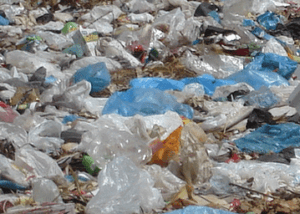Urgent, drastic measures needed on plastic – Parliament
 Parliament on Tuesday stressed the urgent and drastic measures, including outright ban, on plastic to combat the threat of plastics to nature and the environment.
Parliament on Tuesday stressed the urgent and drastic measures, including outright ban, on plastic to combat the threat of plastics to nature and the environment.
A proposed ban was to take effect from November 2015, to help the country deal with the poor sanitation which is mostly as a result of littering of plastic waste, but the ban was not enforced.
Had the ban been enforced, light plastics used in packaging gari and other food products would be scarcely visible.
But, Mr Emmanuel Kyeremateng Agyarko, Chairman of the Parliamentary Select Committee Environment, Science, Technology and Innovation and MP for Ayawaso West Wuogon Constituency, on World Environment Day, said it was time Ghana took drastic measures to deal with the threatening nature of plastics, and its negative consequences on the health and safety on human beings.
June 5 is marked by the United Nations as World Environment Day, a day set aside since 1974 to promote “worldwide awareness and action for the protection of our environment.”
This year’s theme is “beat plastic pollution.”
In a statement on the floor of the House to mark the day Mr Agyarko said Government must insist that manufacturers produced biodegradable plastics if it failed to ban the use of the product.
He called on the nation to find innovative ways, along with vigorous public education to deal with the problem.
Statistics released by the United Nations (UN) indicated that each year, the world used over 500 billion plastic bags with at least 8 billion tons of plastics ending up in the ocean each year.
The UN further estimates that in Ghana 1.7million tons of plastics are generated annually but only 2 per cent are recycled
Further contributions by Members supported the call for ban, and that legislature must be firm to enact legislation to ban plastic use in the country.
Contributing to the statement, Mr Joseph Yieleh Chireh, MP for Wa West, said Ghana needed an environment free of plastics and wondered why Parliament had until now not banned the use of plastics.
Mr Mahama Ayariga, former Minister for the Environment and an expert on Environment Law, said it was necessary to ban the use of plastics to push people to look for alternatives as had been done in countries that had carried the enforcement.
Mr Ayariga, who is also the MP for Bawku Central, suggested to the Ministry of Environment, Science, Technology and Innovation to insist on the use of ozone biodegradable additives in the production of plastics if the country was unable to enforce behavioural change.
He urged the MESTI and the Ministry of Sanitation and Water Resources to initiate legislation to Parliament to ban the use of plastics in the country.
Dr Benard Okoe Boye, MP for Ledzokuku Constituency, urged the House to pass laws that would provide tax incentives for private businesses involved in recycling plastic waste.
He said: “We ought to have funds that will support those businesses that go into recycling of plastic waste,” and explained the fight against unhygienic conditions in the country would not be complete if such businesses were not supported to scale up their operations.
Source: GNA
